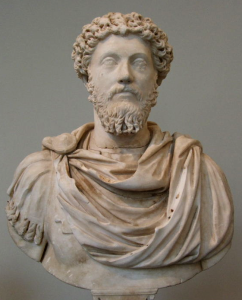 One of the benefits of retirement is that I get to read a lot more than I used to and not all of it has to be professional, academic journals that are more boring than watching whale snot dry. I get to choose books I’m interested in just for the hell of it. Some non-fiction; some fiction. It’s a pleasant mix.
One of the benefits of retirement is that I get to read a lot more than I used to and not all of it has to be professional, academic journals that are more boring than watching whale snot dry. I get to choose books I’m interested in just for the hell of it. Some non-fiction; some fiction. It’s a pleasant mix.
My son (Mark) and I talk each morning on the phone as he commutes to work. We’ve done this for years. We talk about all kinds of really important issues that are likely to change humanity forever and lead to world peace (sports, politics, work, where to get a good massage, etc.). One morning, as I was extolling the virtues of an aimless retirement and seriously thinking about hopping on the rails and becoming a hobo, Mark suggested I delve into the ancient philosophy of stoicism. He thought it was a good fit for me and might frame some of my ramblings about life, stress, decision-making, career change, relationships, and so on in a more coherent way.
Those of you who know me well will agree that my having any interest whatsoever in philosophy is about as likely as me having the winning Powerball AND MegaMillions numbers on the same day. In college I took the obligatory required philosophy course and we spent two whole class periods trying to determine “…if that chair had an essence beyond itself.” I thought my eardrums would explode and my retinas start to bleed. I truly don’t mean to denigrate the field of philosophy or those who study it because I’m sure there is a point to it somewhere, probably in a distant galaxy far, far away. However…
 As it turns out though, Mark was right (he would claim to always be…). Stoicism is an ancient philosophy dating back to the early 3rd century BC about which little of the early writings survived. As a result, not much has been written about it in modern times. But in a nutshell, stoicism is “the pursuit of tranquility.” Simple. Elegant. Enticing. I liked it. It fit like a glove.
As it turns out though, Mark was right (he would claim to always be…). Stoicism is an ancient philosophy dating back to the early 3rd century BC about which little of the early writings survived. As a result, not much has been written about it in modern times. But in a nutshell, stoicism is “the pursuit of tranquility.” Simple. Elegant. Enticing. I liked it. It fit like a glove.
Stoics characterize things in life in three ways: (1) things over which we have complete control, (2) things over which we have no control at all, and (3) things over which we have some but not complete control. As an aside, the very well known Serenity Prayer is rooted in the principles of stoicism (God grant me the serenity to accept the things I cannot change; courage to change the things I can; and wisdom to know the difference.). Each situation in life falls into one and only one of these categories. Applying this trichotomy lens to events in your day-to-day life makes decision-making easier and stress levels decline to near zero.
In effect, stoics would advocate that you forget about things over which you have no control–don’t waste time or energy on them. Focus on those things over which you have total control–less stress, more productive. Situations where you have some but not total control are game-day decisions as to whether or not you want to deal with them at all and at what level–improving my pathetic golf game, not hearing fish laugh at me when I throw a line in the water, etc. With the ultimate goal of achieving “tranquility,” the trichotomy seems a straightforward way to achieve it and provides a framework for decision-making.
I’ve given up on the hobo idea for now (stay tuned, though) and have made many decisions in the past few months through the lens of the philosophy of stoicism. Tranquility abounds.
The best book I’ve found is A Guide to the Good Life: The Ancient Art of Stoic Joy. Another book, albeit a little heavier read, is The Art of Living: The Classic Manual on Virtue, Happiness, and Effectiveness.
If you seek tranquility, give it a read and let me know what you think.
